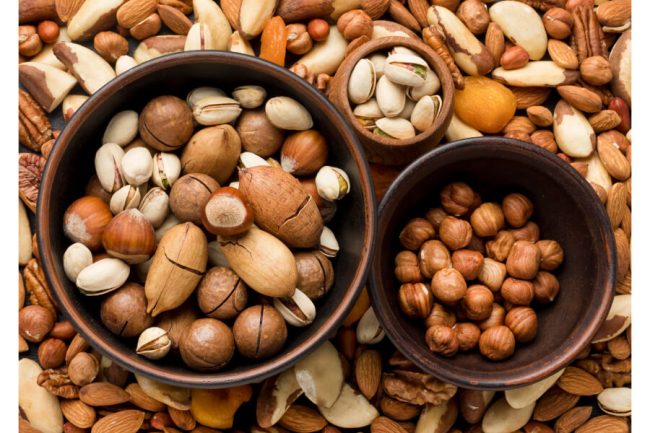The Mediterranean diet has been celebrated worldwide as one of the healthiest eating patterns, known for its delicious and wholesome approach to food. Rooted in the traditional eating habits of countries bordering the Mediterranean Sea, such as Spain, Italy, and Greece, this diet isn’t just a trend but a sustainable lifestyle choice.
It emphasizes natural, whole foods and prioritizes healthy fats, fresh vegetables, lean proteins, and a moderate intake of wine. If you’re looking to embrace a healthier lifestyle, the Mediterranean diet is a great place to start.
Understanding the Mediterranean Diet: What is it?
The Mediterranean diet is more than just a diet; it is a way of life. Unlike restrictive diets that focus on calorie counting or eliminating entire food groups, the Mediterranean diet emphasizes balance, variety, and flavor.
It is based on the traditional eating patterns of the Mediterranean region, where people enjoy a diet rich in fruits, vegetables, whole grains, nuts, seeds, legumes, and healthy fats—especially olive oil. Red meat is eaten sparingly, while fish, poultry, and dairy are consumed in moderate amounts.
Key Components of a Mediterranean-style Diet
Abundance of Vegetables and Fruits
At the heart of the Mediterranean diet are vegetables and fruits, which are loaded with essential vitamins, minerals, and antioxidants. A colorful variety ensures a broad range of nutrients
Whole Grains
Foods like whole wheat, barley, oats, and brown rice are preferred over refined grains. These grains provide fiber and essential nutrients that support digestion and heart health.
Healthy Fats
One of the most distinctive features of the Mediterranean diet is its emphasis on healthy fats, particularly virgin olive oil. Olive oil is rich in monounsaturated fats, which can help reduce bad cholesterol levels.
Moderate Protein from Fish and Poultry
Instead of red meat, the Mediterranean diet encourages the consumption of fish and poultry, which are excellent sources of lean protein and omega-3 fatty acids.
Legumes, Nuts, and Seeds
These are vital sources of protein, fiber, and healthy fats. Including them in your meals not only adds nutritional value but also variety and texture.
Herbs and Spices for Flavor
Instead of salt, herbs and spices are used to add flavor to dishes. This not only enhances taste but also brings additional health benefits.
Moderate Dairy Consumption
Cheese and yogurt are commonly consumed in moderation, providing calcium and probiotics.
Red Wine in Moderation
A small glass of red wine is often enjoyed with meals. Red wine contains antioxidants like resveratrol, which may offer some health benefits when consumed in moderation.
Health Benefits of Adopting a Mediterranean Diet
The Mediterranean diet has been associated with numerous health benefits. Here’s why this diet is considered one of the best:
Weight Loss and Management
The Mediterranean diet promotes satiety through high-fiber foods and healthy fats, which can help in maintaining a healthy weight. Studies have shown that people on this diet tend to have lower body mass indexes (BMI) and waist circumference compared to those on a Western diet.
Heart Health
With a focus on healthy fats like virgin olive oil and omega-3 fatty acids from fish, the Mediterranean diet helps in reducing bad cholesterol (LDL) levels while increasing good cholesterol (HDL) levels, thus supporting heart health.
Diabetes Prevention and Management
Due to its emphasis on whole grains, fiber-rich foods, and healthy fats, this diet helps in stabilizing blood sugar levels, reducing the risk of type 2 diabetes.
Protective Effects on Brain Function
Research suggests that the Mediterranean diet may help in protecting against cognitive decline and diseases like Alzheimer’s, thanks to its high levels of antioxidants and healthy fats.
Reduced Risk of Chronic Diseases
The Mediterranean diet’s rich nutrient profile, including antioxidants, vitamins, and healthy fats, may lower the risk of certain cancers, reduce inflammation, and improve overall longevity.
Tips and Tricks for Mediterranean Diet
Transitioning to a Mediterranean diet is simple and sustainable, with the following tips to help you get started:
- Start with Small Changes: Replace butter with olive oil, swap refined grains for whole grains, and add more fruits and vegetables to your meals.
- Plan Your Meals Around Plant-Based Foods: Make vegetables, fruits, legumes, and whole grains the centerpiece of your meals.
- Incorporate Fish and Lean Proteins: Aim to eat fish like salmon, sardines, or mackerel at least twice a week. Incorporate lean proteins such as chicken and turkey more often than red meat.
- Enjoy Meals with Family and Friends: Part of the Mediterranean lifestyle is enjoying meals in good company, which enhances the dining experience and can encourage mindful eating.
Foods to Include and Avoid on a Mediterranean Diet
While the Mediterranean diet allows for a variety of foods, there are specific items you should include and some to avoid:
Foods to Include:
- Vegetables: Tomatoes, spinach, broccoli, zucchini, peppers.
- Fruits: Apples, oranges, grapes, bananas (yes, bananas are allowed in moderation!).
- Whole Grains: Quinoa, whole wheat, barley, brown rice.
- Proteins: Fish, poultry, eggs, legumes.
- Healthy Fats: Virgin olive oil, nuts, seeds.
- Dairy: Yogurt, cheese (in moderation).
Foods to Avoid:
- Refined Grains: White bread, pastries, and refined pasta.
- Sugary Beverages: Soft drinks, sweetened juices.
- Processed Meats: Sausages, hot dogs, bacon.
- Excessive Red Meat: Limit intake to a few times a month.
Exploring the Variations: Vegetarian, Vegan, and Gluten-Free Adaptations
The Mediterranean diet is flexible and can be easily adapted to suit various dietary needs:
- Vegetarian and Vegan Options: Emphasize plant-based proteins such as beans, lentils, and chickpeas. Use extra virgin olive oil for cooking and dressings, and enjoy a variety of nuts, seeds, and vegetables.
- Gluten-Free Adaptations: Replace wheat-based grains with gluten-free alternatives like quinoa, rice, and corn. Opt for gluten-free pasta and bread options to keep the diet inclusive for those with gluten sensitivities.
Unpacking the Mediterranean Diet Pyramid
The Mediterranean diet pyramid serves as a visual guide, illustrating the proportions of various food groups to be consumed. At the base are physical activities and social interactions, emphasizing a holistic approach to health. The pyramid encourages daily consumption of vegetables, fruits, whole grains, olive oil, nuts, and legumes, with moderate intake of dairy, fish, and poultry, and minimal consumption of red meats and sweets.
Personalizing the Mediterranean Diet to Fit Your Needs
To truly reap the benefits of the Mediterranean diet, personalize it according to your needs and preferences. This could mean adjusting portion sizes, meal timings, or focusing on specific nutrients like fiber or protein, depending on individual health goals.
Conclusion
The Mediterranean diet is not just another diet; it’s a sustainable, delicious, and health-promoting way of life. From supporting heart health and weight management to protecting brain function and preventing chronic diseases, its benefits are backed by science. By embracing the Mediterranean diet and incorporating its principles into your daily routine, you can enjoy both the flavors and the health benefits it offers.
FAQs
What are the main foods in a Mediterranean diet?
Vegetables, fruits, whole grains, healthy fats like virgin olive oil, lean proteins such as fish and poultry, nuts, and seeds.
What is not allowed on the Mediterranean diet?
Refined grains, sugary beverages, processed meats, and excessive red meat are generally avoided.
Are potatoes okay on a Mediterranean diet?
Yes, potatoes can be included in moderation as part of the diet, especially when baked or boiled rather than fried.
Are bananas okay on the Mediterranean diet?
Yes, bananas are fine in moderation and provide a good source of potassium and energy.












